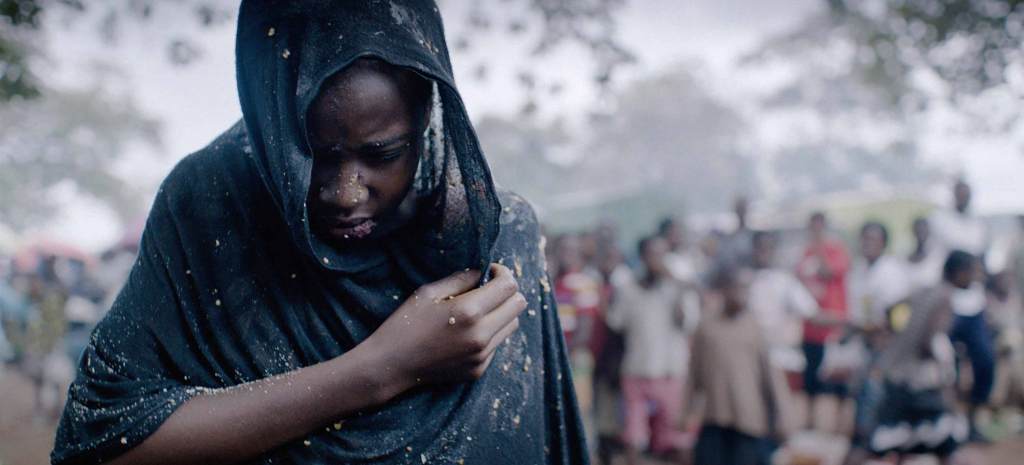
Prominent Nigerian actress and award-winning filmmaker Stephanie Okereke Linus wanted to make a film that drew attention to a set of serious and closely related problems in her country: child marriage, sexual violence, and fistula. Her latest film, Dry, tells the story of 13-year-old girl whose parents marry her off to a 60-year-old man, with devastating consequences.
The Ford Foundation-supported film has been received with great acclaim, including being honored as Africa Magic Viewers’ Choice Awards Film of the Year in Nollywood. As a result, the film is sparking conversations about gender inequality in Nigeria and beyond.
On Twitter, we talked to Okereke Linus about her powerful film and the urgent issues at its heart.
In our conversation, Okereke Linus explained that Dry is based on true stories of child brides who have fistula, a condition that leaves a hole between a woman’s vagina and her bladder or rectum—and often results from absent or inadequate reproductive health care during birth. Girls who are married as children are particularly at risk, because their bodies aren’t mature enough to bear children. Aside from its painful physical impacts, women and girls with fistula are often ostracized by their communities.
Tell us more about the real girls behind the movie.
.@FordFoundation DRY is inspired by the true-life stories of several girls I have met over the years. #InequalityIs
— StephanieOkereke (@StephanieLinus) March 30, 2016
.@FordFoundation My research on fistula in college brought me around Nigeria and other countries #InequalityIs
— StephanieOkereke (@StephanieLinus) March 30, 2016
.@FordFoundation There I met lots of young girls who had been forced into early marriage and had Fistula. #InequalityIs
— StephanieOkereke (@StephanieLinus) March 30, 2016
.@FordFoundation Many of them shared their stories with me, which inspired the script for the film. #InequalityIs
— StephanieOkereke (@StephanieLinus) March 30, 2016
Was there a particular girl whose story affected you the most?
.@FordFoundation There was this one girl I met, and her story blew my mind. #InequalityIs
— StephanieOkereke (@StephanieLinus) March 30, 2016
.@FordFoundation: Her name is Amina. She was married off very early, even before she became a teenager. #InequalityIs
— StephanieOkereke (@StephanieLinus) March 30, 2016
.@FordFoundation: She got pregnant and had Fistula after being in labour for several days at home. #InequalityIs
— StephanieOkereke (@StephanieLinus) March 30, 2016
.@FordFoundation: Her community didn’t understand her condition. She got mocked and shunned, and her husband abandoned her. #InequalityIs
— StephanieOkereke (@StephanieLinus) March 30, 2016
How does inequality perpetuate fistula cases and child marriage?
.@FordFoundation The factors that contribute to fistula arise from overlapping areas of inequality for women. #InequalityIs
— StephanieOkereke (@StephanieLinus) March 30, 2016
.@FordFoundation Women’s low status means they don’t get the right #reprohealth attention, including in childbirth #InequalityIs
— StephanieOkereke (@StephanieLinus) March 30, 2016
.@FordFoundation Fistula, #childmarriage affect the most powerless of society. These are issues of #reprojustice #genderequity#InequalityIs
— StephanieOkereke (@StephanieLinus) March 30, 2016
.@FordFoundation #Childmarriage in West Africa is rooted in poverty and the overall position of women in society. #InequalityIs
— StephanieOkereke (@StephanieLinus) March 30, 2016
.@FordFoundation Lack of education, harmful cultural practices, and limited economic prospects lead to #childmarriage #InequalityIs
— StephanieOkereke (@StephanieLinus) March 30, 2016
.@FordFoundation When a wealthy man comes offering money, they’ll marry their daughters even if they are young #InequalityIs
— StephanieOkereke (@StephanieLinus) March 30, 2016
.@FordFoundation In communities where there are no laws against forced marriage, girls suffer. #InequalityIs
— StephanieOkereke (@StephanieLinus) March 30, 2016
What impact do you think and hope your film can have on these issues?
.@FordFoundationI believe that films should strive to ignite and open up social dialogue. #InequalityIs
— StephanieOkereke (@StephanieLinus) March 30, 2016
.@FordFoundation: As a filmmaker, I felt that I have the tool to mirror the things that are happening in my society #InequalityIs
— StephanieOkereke (@StephanieLinus) March 30, 2016
.@FordFoundation And I wanted to generate a dialogue on fistula and #childmarriage, which I hope can lead to solutions. #InequalityIs
— StephanieOkereke (@StephanieLinus) March 30, 2016
.@FordFoundation I wanted the message to hit home hard. And the responses have been great on social, email, texts, reviews. #InequalityIs
— StephanieOkereke (@StephanieLinus) March 30, 2016
.@FordFoundation Nigeria is a beautiful country, there are so many opportunities. #InequalityIs
— StephanieOkereke (@StephanieLinus) March 30, 2016
.@FordFoundation But also there are some realities in Nigerian culture that people don’t want to talk about. #InequalityIs
— StephanieOkereke (@StephanieLinus) March 30, 2016
.@FordFoundation DRY has made Nigerians and the world talk more about #childmarriage, fistula. And for this I am glad! #InequalityIs
— StephanieOkereke (@StephanieLinus) March 30, 2016
Check out the rest of the conversation, and please add your voice. Dry is available to watch on Amazon or iTunes.
Accessibility Statement
- All videos produced by the Ford Foundation since 2020 include captions and downloadable transcripts. For videos where visuals require additional understanding, we offer audio-described versions.
- We are continuing to make videos produced prior to 2020 accessible.
- Videos from third-party sources (those not produced by the Ford Foundation) may not have captions, accessible transcripts, or audio descriptions.
- To improve accessibility beyond our site, we’ve created a free video accessibility WordPress plug-in.